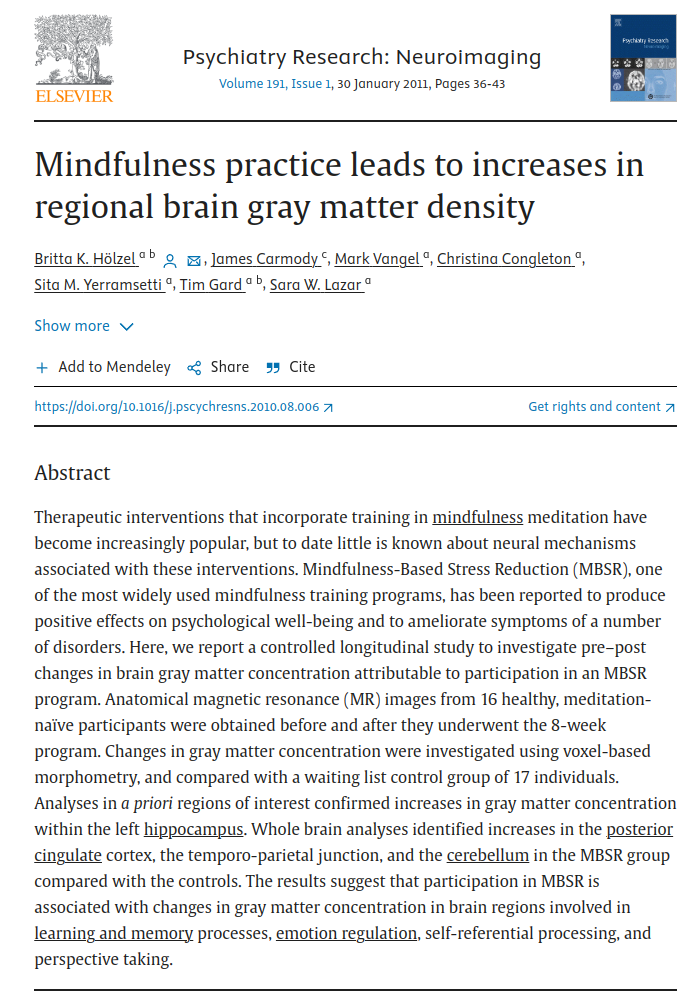Therapeutic interventions that incorporate training in mindfulness meditation have become increasingly popular, but to date, little is known about neural mechanisms associated with these interventions. Mindfulness-Based Stress Reduction (MBSR), one of the most widely used mindfulness training programs, has been reported to produce positive effects on psychological well-being and to ameliorate symptoms of a number of disorders. Here, we report a controlled longitudinal study to investigate pre-post changes in brain gray matter concentration attributable to participation in an MBSR program. Anatomical MRI images from sixteen healthy, meditation-naïve participants were obtained before and after they underwent the eight-week program. Changes in gray matter concentration were investigated using voxel-based morphometry, and compared to a wait-list control group of 17 individuals. Analyses in a priori regions of interest confirmed increases in gray matter concentration within the left hippocampus. Whole brain analyses identified increases in the posterior cingulate cortex, the temporo-parietal junction, and the cerebellum in the MBSR group compared to the controls. The results suggest that participation in MBSR is associated with changes in gray matter concentration in brain regions involved in learning and memory processes, emotion regulation, self-referential processing, and perspective taking.
Mindfulness practice leads to increases in regional brain gray matter density
Publication
Psychiatry Research: Neuroimaging
Volume 191, Issue 1
Abstract
Web and Email Links
Related Listings
Journal
Behavioral Medicine
The authors assessed data from 1,148 outpatients in a 10-week medical symptom reduction program to determine the effectiveness of a behavioral medicine intervention among somatizing patients. The program included instruction in the relaxation response, cognitive restructuring, nutrition, and exercise. Before and after the intervention, the patients were evaluated on the Symptom Checklist-90 Revised (SCL-90R), the Medical Symptom Checklist, and the Stress Perception Scale. They were di […]
Journal
Journal of the American Heart Association
·
Provides 37 pages of summaries from decades of research concerning how meditation affects heart related functioning (blood pressure, heart rate, etc.) Abstract Despite numerous advances in the prevention and treatment of atherosclerosis, cardiovascular disease remains a leading cause of morbidity and mortality. Novel and inexpensive interventions that can contribute to the primary and secondary prevention of cardiovascular disease are of interest. Numerous studies have reported on the […]
Journal
American Heart Journal
Background: The effect of intercessory prayer (IP) on outcome in cardiac cases has been evaluated previously, but results are controversial. The goals of the Study of the Therapeutic Effects of Intercessory Prayer (STEP) are to evaluate the effects of receipt of additional study IP and awareness of receipt of additional study IP on outcomes in patients undergoing coronary artery bypass graft surgery. STEP is not designed to determine whether God exists or whether God does or does not […]

